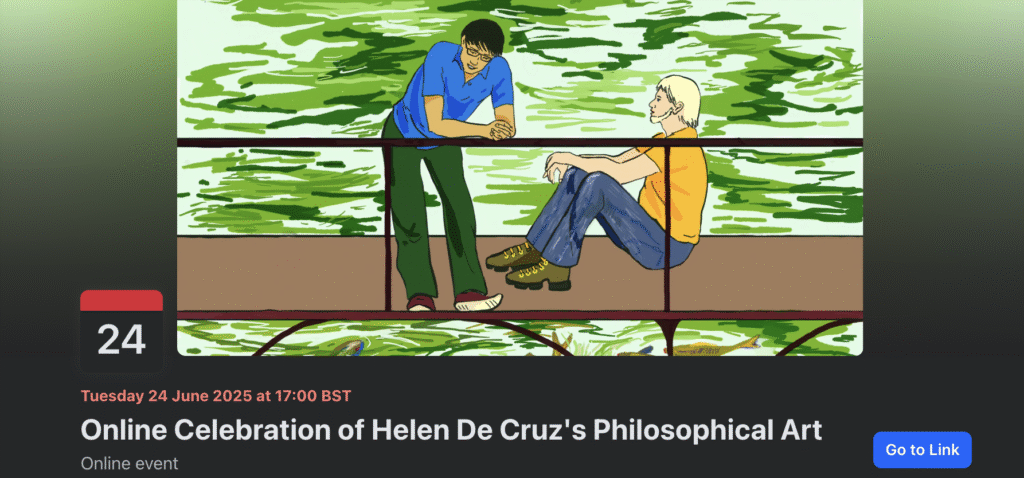In the online memorial event (24th June 2025) to celebrate the philosopher and writer Helen De Cruz’s life, Georgi Gardiner who hosted the session asked the question:
“If Helen designed a campus/university, what would it look like?”
I didn’t know Helen personally but have been deeply inspired by her writing and art. I wanted to write something to honour her work and share some ideas about how her philosophy has enriched our ideas for learning spaces.
(It is a coincidence the Learning Space Project I developed with Stimpunks is called Cavendish – this is unrelated to Helen’s set of beautiful illustrations for The Blazing-World, by Margaret Cavendish, Duchess of Newcastle. Stimpunks’ Cavendish Space is named after Henry Cavendish, a scientist from the 1700’s).

Awe, Wonder and
Different Ways of Knowing:
Cavendish Space and
Helen De Cruz
There’s something powerful about creating space for people to think and learn in their own unique ways. Whether it’s the sensory-friendly Cavendish Space that is the foundation stone of Neuroqueer Learning Spaces that I have developed with Stimpunks or the thoughtful, creative work of philosopher Helen De Cruz that may be shared around our campfires; both invite us to imagine how learning and knowledge can work for everyone.
Helen De Cruz is a philosopher (1978-2025) who writes about imagination, wonder, and how we come to believe and understand things. Her book Wonderstruck: How Wonder and Awe Shape the Way We Think, was my most inspiring read of last year.
I took part in a brilliant reading group hosted by The Philosopher 1923, where we explored Helen De Cruz’s work in depth. In the final week, we were lucky to be joined by Helen herself, and I remember discussing neuroqueer theory and the projects I was developing with Stimpunks, particularly the ways her ideas resonated with and helped shape our thinking. These conversations had a lasting impact , deeply influencing our Neuroqueer Learning Spaces project, helping to evolve the vision behind Cavendish Space, and continuing to inform much of my current writing and emerging ideas.
Stimpunks’ Cavendish Space is named after Henry Cavendish, a scientist from the 1700’s who lived a very unique life. He was quiet, sensitive to sound, and followed his own routines, but he also made important scientific discoveries. For us he’s a symbol of what’s possible when people are allowed to think and learn in ways that work for them, when Autistic people are free to follow their monotropic passions and flow. Cavendish is proof that deep focus, quiet curiosity, and different minds can lead to wonderful things and ways of connecting with our true selves and others. Cavendish Space is all about creating places where people can follow their interests, feel safe, and get absorbed in what they love with people they trust, where there is also time to regulate, re-set and re-energise by ourselves.
Cavendish Space is a welcoming, flexible environment designed for everyone but especially beneficial for neurodivergent people to explore their interests. It honours sensory needs and bodily autonomy, creating a foundation where individuals can learn, reflect, and connect in ways that feel natural and safe. This approach aligns closely with Helen De Cruz’s work, which like Cavendish Space is grounded in the values of curiosity, care, and deep respect for expansive and divergent ways of thinking and being.
In her book Wonderstruck, De Cruz explores how moments of awe and wonder can open up our minds, inviting us to ask questions, be curious and see the world differently. For her, wonder isn’t just an emotion it is magic. Magic is wonder and power, it’s a vital way of thinking, of paying attention, and of forming meaningful connections with ideas, people, and the world around us.
Honouring Helen De Cruz’s work within Cavendish Space is about more than referencing her work, it’s about embodying the values she brings to philosophy and the wider world. She offers a deep respect for wonder, a commitment to epistemic humility, and a belief in the richness of diverse minds. Her philosophy invites us to reimagine thinking as something playful, relational, and open to all, not limited by conventional rules or hierarchies.
By weaving her influence into the fabric of Cavendish Space, we affirm that curiosity, care, and difference are not only welcome, they are essential to how we learn, grow, and imagine new futures together and can inspire awe and wonder.
In memory of Helen De Cruz (1978–2025)
https://www.gofundme.com/f/support-helens-children-after-her-passing
